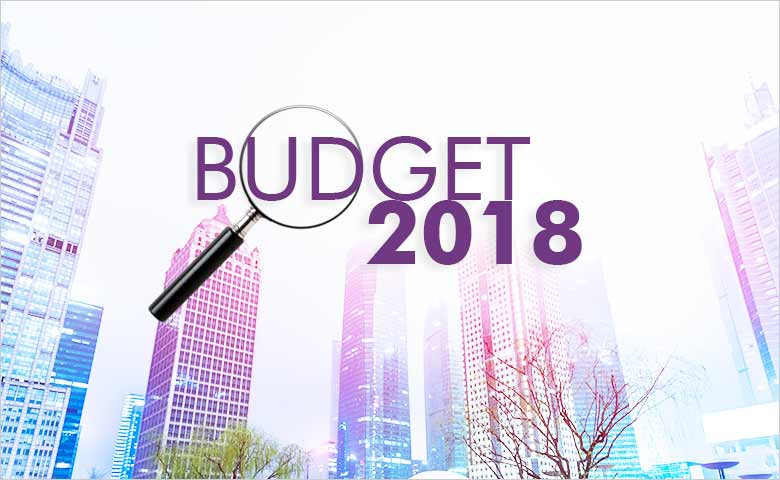Post the budget, the RBI policy meeting was the next anticipated big news, but once again as expected the RBI kept the rates unchanged hinting towards the possible budget deficit and firming inflation rate.
The month that started euphorically with announcement of measures for affordable housing has failed to live up to the more than exuberant expectations of the realty fraternity. If the expectation were extremely high side, one could argue the offerings were also on the much lower side in the budget.
Importantly the policy announcements from the government have been about visions and much less on the actual execution of the vision. This has created a fairly negative outlook within the developer community and by not giving any further benefits outside the Affordable housing, the home owner buyer has also not shown any enthusiasm in reaching out to buy new properties.
On 8th Feb 2018, with a view to mark their inclination Ministry of Finance have issued a statement suggesting that the developers of affordable housing should not be charging any GST to the end customers. This is proposed stating that the deficit can be easily met by the rebates on taxes that the developer shall earn while procuring goods.
The finance ministry further clarified that most affordable housing projects attract a 12% GST, the effective rate of which falls to 8% after adjusting for the cost of land, which is not subject to GST. Only the value of the house, excluding land, is taxed under GST. Equipment deployed in construction such as capital goods are taxed at a higher rate of 18% or 28%. So, the builder or developer would have enough input tax credit in his books to pay the output GST, in which case, hence they should not recover any GST payable on the flats from the buyers.
The ministry further went to say that the developers can only claim GST, if the valuation of the input credit clearly outweighs the outflow which the ministry is of the view is not going to happen or in the other case where the they clearly pass on the benefits of the tax credits in the basic pricing of the unit. In the statement they once again drew attention to the fact that developers have to diligently follow the anti-profiteering principles laid down under Section 171 of the GST Act.
Such guidelines from the Finance Ministry is a very welcome move, as it cognizant of the fact that bringing affordability in the realty sector is a sure shot way to boost consumption and thereby provide direct impetus to the industry.
Here we have guideline stating no GST, but for a developer is it really implementable or for the authorities to easily quantifiable.
The GST act has only been implemented 2 quarters back, and during this brief tenure, the GST committee has revised the rates of various items after rationalizing, which is surely a welcome move and further such rationalization is expected to go on till coming entire 4 Quarters of the next financial year. If this is not enough, we expect the exempted items like Petrol / Diesel products to come under the GST net, having far reaching consequences to the overall economy.
Scenario 1
The developer had launched a project in Dec 2016, and made 10-20% sales and also invested significantly during this period for the construction of the project. Now Post July 2017, the developer has been required to charge 12% GST instead of service tax which was around 4% under construction sales inventory. This immediately affects the sales as the cost has gone up by 8 – 10%. Simultaneously RERA act also came into, so now the project has to be registered under RERA act as well. As the timelines of the delivery of project is staggered, it is being registered as two or three projects. Now the cost of the land and other construction related cost which have already been incurred will have to be accordingly recalibrated to have proportionate share in each phase of the project which are being registered.
During this time, some of the products in ceramic industries are rationalized by the GST committee and the GST rate is reduced. This again requires recalibration of the pricing.
Between all this due the RERA guidelines the payment is stuck in accounts as only certain amount of money can be realized from the sales proceeds. As GST is completely new act with no precedent, there is significant ambiguity on the interpretation at all ends. We and many have in past touched upon this subject at various forums and hence not going further into it.
As a result, overall the macro scenario of the industry as a whole is becoming better, but the ongoing projects are in financial turmoil from the developer perspective. One who has no clarity of how much input credit is one is going to avail; how can one pass on the perceived benefits.
Scenario 2
The project is launched after GST and after RERA, the developer is fairly clear on the input credit and hence has accordingly priced the property after understanding the cost and market absorption capacity.
In such cases any new changes may be possible to implement, but the question is why is the government being regimenting as in socialistic society of what to charge or not charge or are we a market driven capitalistic economy?
Given that notion and view of the government is well intentioned, but so many changes within a single year especially in real estate industry will take time to be digested by the industry as a whole. The developer and end user shall come to terms in coming days with the new reality and the market pricing shall adjust to soak in the benefits or the extra cost one way or the other.
Be it any sector whether real estate/ education/ medical, the demand and not sheer greed has led to the development of the overall sectors. Let there be clear rules of conduct and then let the market led economy to find it’s own balance. On the matter of rules, with a country as diverse and vast as ours, implementation of the law itself is difficult enough, implementing the guideline shall be next to impossible.




